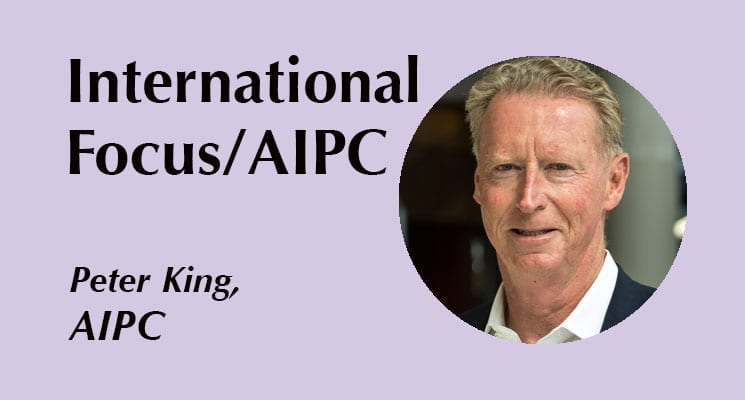by Peter King, CEO, Melbourne Convention and Exhibition Centre
“Thank goodness for cricket.” There is indeed no doubt about that—what a wonderful game! But the quote comes in a very specific context: the re-opening of venues for organized events. In a growing number of regions, local authorities are allowing events—including sports—to take place, albeit on a smaller scale and when respecting a strict safety protocol.
These authorities realize that organized events are important for the much-needed re-launch of the economy and face the challenge of balancing this with health and safety challenges. In reality, business events, more specifically, can turbocharge economic activity and provide much needed jobs. Getting back to business in a COVID-safe environment is not an easy task and venues need to provide their authorities with insights on how and why organized events need to take place. AIPC supports this effort by providing clear guidelines and does so in partnership with ICCA and UFI to ensure message are streamlined and come with a stronger voice.
We need to be asking, and actively advocating, for the trust of our local authorities. We have always looked after the safety and security of our visitors and delegates as our first priority. We will never compromise their safety or our reputation. We need to be allowed to do what we do so well. Opening our doors and appropriately managing the congregation of people. In cricketing parlance, venue managers are great all-rounders—we are used to chipping in and doing a bit of everything to get the right result.
In parallel to this conversation, event venues are re-thinking the ways to achieve their core mission: to bring people together for a joint purpose and to enable these communities to share ideas, plans and projects which will bring them to a brighter future in their respective fields of profession.
This will require more than a new ball. All players involved—both within venue and the larger event ecosystem—will need to profoundly rethink how this can be engineered in the best possible way. Classic event business will remain but it needs to be enriched with new products and services. For example: technology needs to be deployed to provide a safe and secure environment—such as crowd management tools. This also allows us to obtain deeper insights in overall participant behavior. Collecting this data on a continuous basis will allow us to create better delegate experiences and adapt almost instantly when needed. Technology also allows us to increase reach and complement the on-site event with virtual elements, targeting not only professionals who are no longer allowed to travel but also audiences who until now were “unserved” as the on-site experience was simply not accessible, for financial or other reasons.
The identification and implementation of these opportunities will result into a new value proposal, with a key focus on engagement, independently whether that is through physical or virtual components. As one of our colleagues said during a recent meeting: “We do not run buildings, we manage experiences.” To deliver upon this, an even closer partnership between venues, destination and event organizers is needed and hence organized events become platforms for achieving a multi-layered set of goals. Legacies include economic recovery, creation of jobs and social and community-based outcomes.
This is of course not new—many destinations are already exploring these routes to create other types of value. What is new is the momentum created by the current crisis to re-think and re-shape organized events in ways which were not conceivable six months ago. Very similar to the fact that nobody could imagine that working from home could actually work on such a massive scale—and yet it does. Given the concentration of creative forces within the event ecosystem, organized events will be back—with a twist—or a bit of a spin, just to return to cricket!
Peter King, a member of the AIPC Board of Directors, is chief executive at the Melbourne Convention and Exhibition Centre.
AIPC, the International Association of Convention Centers, represents a global network of more than 185 leading centers in 60 countries with the active involvement of more than 900 management-level professionals worldwide. It is committed to encouraging and recognizing excellence in convention center management, based on the diverse experience and expertise of its international representation, and maintains a variety of educational, research, networking and standards programs to achieve this. AIPC also celebrates and promotes the essential role of the international meetings industry in supporting economic, academic and professional development and enhancing global relations amongst highly diverse business and cultural interests. For more info, visit www.aipc.org.
This story originally appeared in the Sept./Oct. issue of Exhibit City News, p. 30. For original layout, visit https://issuu.com/exhibitcitynews/docs/ecn_sept-oct_2020






























